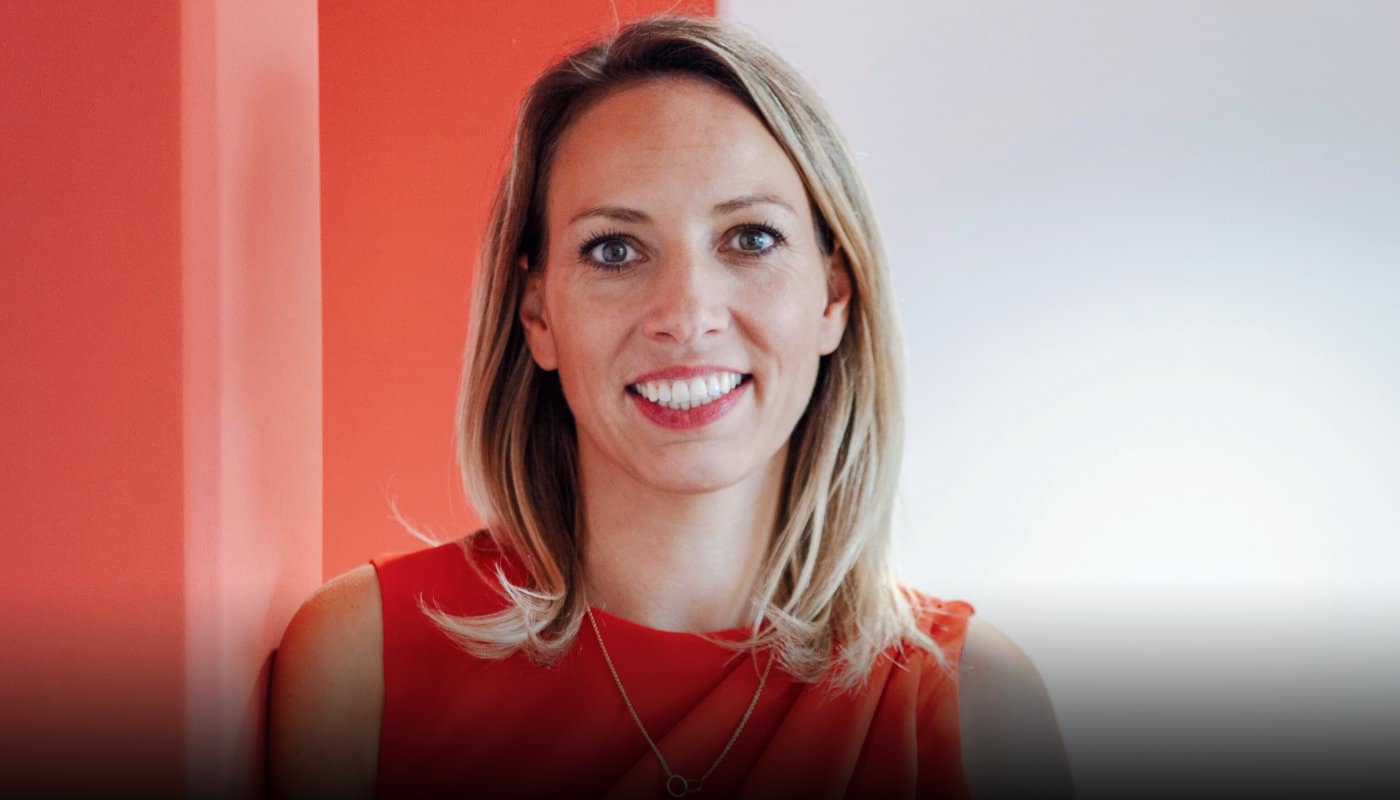Lawyers in big law firms are known for working long hours. Many clients and colleagues expect them to be always available, flexible and focused. It seems difficult to always reconcile this with the needs of the family. Learn about the career path of becoming a partner in an international law firm while raising two children, as well as personal and business reconciliation strategies and obstacles. Discuss how family and career can be reconciled, bringing in your own experience, and how businesses can contribute best to prevent talent brain drain. herCAREER interview with Lene Kohl, WIL member and Partner, Osborne Clarke law firm.
„How to best reconcile work and private life as a lawyer depends also very much on the field of law you are in.“
herCAREER: During your career as a lawyer, what experiences have you had with the expectation of constant availability? How have you managed to create space for non-work commitments?
Lene Kohl: It is true that both clients and colleagues expect availability, and I believe that responsiveness is an important skill for a lawyer. However, in most cases immediate attention is not necessary. In these cases, it is possible to just reply that you will be in touch later. That way you still respond promptly but can do the actual work when it fits in well with your other commitments.
I also take advantage of my great flexibility and often work outside of normal working hours in order to be able to pick up my kids from school and spend time with them in the afternoon. When they are in bed, I often return to my desk and get my work done without the many interruptions that happen during normal working hours. I am most productive in the evening hours anyway.
How to best reconcile work and private life as a lawyer depends also very much on the field of law you are in. I am a litigator and in litigation cases you usually have court deadlines of at least several weeks, which you can prolong at least once for another several weeks. Thus, I know the busy periods, when a court deadline is approaching, beforehand and can even influence the timing by applying for an extension. Anticipating these busy periods and planning my personal commitments around them is vital for creating space for these commitments.
Still, there are emergencies when it is required to act promptly or urgent deadlines that require immediate attention. In these cases, I am very lucky to have great support from my family.
herCAREER: How can a team help to make it easier for colleagues with care responsibilities?
Lene Kohl: Emergencies can obviously also happen in one’s private life and in particular due to care responsibilities. For example, it might suddenly be necessary to pick up a sick child from childcare. It goes without saying that the team has to help out in these cases and take over urgent work, if necessary.
But it is not only in these cases that a team can make it easier for colleagues with care responsibilities. Generally, a supportive team, with a culture of open communication about commitments, individual needs as well as challenges, and of understanding and empathy can significantly alleviate stress and hence makes it easier to juggle work and care responsibilities.
herCAREER: And what should employers do to support their employees in balancing work and family life?
Lene Kohl: Fostering such supportive environment of open communication, understanding and empathy is first and foremost what employers should do, because – besides the obvious supportive measures such as providing for part time as well as remote working possibilities and possibly childcare – flexibility is of utmost importance for balancing work and family life.
Family responsibilities can be unpredictable and vary greatly from one individual to another. By allowing employees to adapt their working hours, employers can help employees better fit their care responsibilities into their schedules and meet the unique needs of their families, such as attending a child’s school event, caring for a sick family member, or managing other personal commitments.
Also, when employees have the flexibility to manage their work and family life, they feel more in control and less overwhelmed. Therefore, flexible hours can significantly reduce stress and prevent burnout, enhance productivity and contribute to a more inclusive work environment.
Recognizing employees who successfully balance work and family life can further promote a positive workplace culture. Such role models, who show that it is possible to integrate work and personal life in a fulfilling way, can inspire and encourage others to strive for a similar work life balance, again leading to a more productive and effective workforce.
herCAREER: At herCAREER, the focus is on professional exchanges, which is based on the personal experiences and the knowledge of the sparring partners. As an organizer, it is also in our best interest to support women beyond the exhibition and make our networks accessible. We would therefore like to ask you if you would also act as a sparring partner in addition to the expo participation. If so, we would ask you to name the topics for which you would act as a sparring partner in bullet points.
- gender equality
- reconciliation of work and family
- general challenges/obstacles for women in male dominated organizations
- D&I measures to foster gender equality
- social mobility
Use one of the ways to contact the interviewee and refer to the herCAREER community interview.
About this person
Lene Kohl is a partner in Osborne Clarke’s German disputes team representing claimants and defendants in litigation and arbitration proceedings with a special focus on commercial, construction, competition, post M&A and mass tort disputes. She grew up bilingually in Hamburg and Rome, studied law in Berlin and received a doctorate degree at the University of Bielefeld. Lene started her career as a litigator in 2010, working for two other internationally active law firms, before joining Osborne Clarke’s Berlin office in 2019. She has litigated numerous complex cases before German courts on behalf of clients in various industries, including the IT, automotive, construction, energy, and insurance sectors. Lene is a WIL member and the German representative for Diversity, Equity & Inclusion at the international level of Osborne Clarke. She has two daughters, who were born in 2014 and 2017, and is passionate about opera (having studied classical singing during and after law school).
The MeetUp is presented by European Network for Women in Leadership (WIL Europe). This MeetUp is part of the Career MeetUps at herCAREER 2024, see program for location and time.












